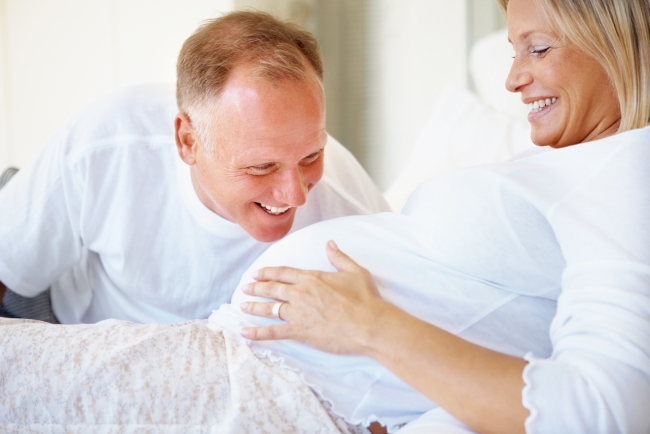
Contrary to popular belief, both men and women’s fertility decreases as they age.
Between the age of 18-24 women are at their most fertile, with the optimum ages for women to get pregnant naturally being 20-25. After the age of 26, women fertility starts to decrease slowly and by the age of 40 it is increasingly difficult for women to conceive naturally.
Male fertility is less affected by age, however infertility rises in men as they get older.
Age and Female Fertility
Women are born with a finite number of eggs. Ovulation occurs every month during the woman's menstrual cycle and as a result the number of eggs women have decreases with age. Women continue to release eggs every month until the menopause however, as women age, the body responds less to hormones that mature ova prior to ovulation. As a result the quality of the eggs begins to decline from the age of 25.
The outer shell of ova hardens over time. A harder exterior makes the process of sperm fertilizing the egg more difficult.
The risk of children being born with genetic disorders increases drastically in women over 40. Women over 35 are at high risk of miscarriage and problems during pregnancy.
Age and Male Fertility
Unlike women who do not continually produce eggs, men produce sperm all of their lives. Technically, there is no age limit on men fathering children but the quality of sperm decreases with age. Sperm produced by males over the age of 55 has lower motility making it harder for sperm to fertilize eggs and sperm from older men is more likely to be affected by genetic disorders. The decrease in sperm quality with age is a result of the testes shrinking as men age.
Will my age affect the success rate for my IVF treatment?
Age is a factor that affects fertility, especially for women. Many IVF procedures are necessary due to age related infertility as a result of women delaying pregnancy.
Women under the age of 30 are more likely to have successful IVF which results in pregnancy from the first treatment cycle.
As women age, the quality of egg reserves declines. Women may stop ovulating regularly, may experience problem with ovulation or tubal blockages that prevent eggs being released. The quality of ova decreases as women age and the outer shell of eggs can harden and become harder to fertilize.
Women over the age of 40 are more likely to have a pregnancy where the child is born with a birth defect due to the imbalance or defectiveness of chromosomes that often occurs in older pregnancies.
Men are less likely to experience infertility caused by age, however after the age of 50 men may experience a low sperm count or lesser quality sperm.
IVF Clinics in Turkey
Once you click the button you will receive your quote in your email within a few minutes and we will never spam you.

